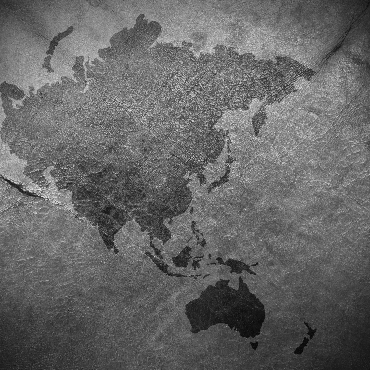PNG BALANCES CHINA AND AUSTRALIA
Papua New Guinea (PNG) may be the largest nation in the Pacific Island region, but it finds itself in the same dilemma as its neighbors, caught between economic dependence on China and strategic reliance on the United States and its allies. In April 2024, this tension came to the fore when Port Moresby hosted consecutive visits from China's Foreign Minister, Wang Yi, and Australian Prime Minister Anthony Albanese. PNG's dilemma is acute; China and Australia collectively account for more than 70% of the country's bilateral trade, a statistic that Prime Minister James Marape highlighted in the lead-up to both visits. Marape reiterated his government's intent to be "friends for all," and stated that Papua New Guinea does "not intend to compromise our relationship with China, or with any country for that matter." Marape's even-handed rhetoric, however, has stoked suspicions that PNG is considering building our its defense relationship with the People's Republic of China, something that Port Moresby had previously reserved for the United States and Australia.(U.S. News & World Report, April 18, 2024)
MARKET RISK BOOSTS SOUTHEAST ASIA AS SEMICONDUCTOR HUB
Manufacturers of semiconductor components who have long depended on China or Taiwan have continued diversifying their supply chains in response to geopolitical tensions, sluggish economic growth in China's economy, and concerns about supply chain resiliency. Consequently, countries like Thailand, Vietnam, and Malaysia - who have made critical investments in semiconductor packaging and expanded circuit board plants — have emerged as key players. Taiwanese companies, for their part, have responded positively to these developments; according to the Financial Times, "Taiwanese investments in Thailand, Vietnam, and Malaysia rose 140% in 2023 over the previous year to more than $2.2B." That electronics companies like Foxconn, Quanta and Wistron are willing to deal with the costs of setting up shop in Southeast Asia speaks volumes about the increasing political risk of overdependence on markets in Beijing and Taipei. (Financial Times, April 10, 2024)
WASHINGTON SEEKS IMPROVED RELATIONS WITH BANGLADESH
The interplay between interests and values is a persistent challenge in U.S. foreign policy, one that has recently taken center stage in South Asia. The United States has long regarded Bangladesh as an important partner in the Indo-Pacific. Even as Dhaka has strengthened its ties with Beijing, Bangladesh's geography – abutting India with direct access to the Bay of Bengal – has allowed it to remain a critical player in the region. During Bangladesh's 2023 national elections, however, relations between Washington and Dhaka hit a low point. In light of political violence, unrest, and concerns about election interference by the country's ruling party, Washington voiced worries about Dhaka's record on human rights and democracy, and criticized the elections as "not free and fair."
Still, the country's strategic location remains of overriding interest to the United States. While Washington applied largely symbolic sanctions to the country, the Biden administration's top envoy to South and Central Asia subsequently visited Bangladesh and made little mention of human rights and election integrity. Rather, his remarks focused on boosting economic ties and cooperating on climate policy, suggesting that Washington is preserving political capital for confrontations with Beijing. (Nikkei Asia, May 28, 2024)
U.S. TURNS TO ASIAN ALLIES FOR SHIP BUILDING CAPACITY
China is quickly outpacing the United States in its shipbuilding manufacturing capacity, a development which could have crucial implications for regional security. In response, the U.S. Navy is exploring new and innovative ways of boosting shipbuilding production, such as leveraging partnerships with allies that hold a competitive edge in shipbuilding manufacturing. Back in June, South Korean defense contractor Hanwha acquired Philly Shipyard located in Philadelphia, Pennsylvania for $100 million. According to Nikkei Asia, U.S. Navy Secretary Carlos Del Toro described the deal as "a game changing milestone." The acquisition also aided the Navy's broader strategy of bringing innovation to U.S. markets. The Hanwha acquisition could potentially serve as a template for future commercial acquisitions and upgrade the Navy's shipbuilding capacity by decreasing production times. (Nikkei Asia, June 21, 2024)
CHINA EXPORTS SURVEILLANCE TECH TO MYANMAR
Since a 2021 coup d'etat overthrew the democratically elected government in Burma, the country's ruling military junta has relied on a combination of military force and digital repression to maintain its grip on power. Beijing has aided Naypyidaw in this effort, supplying weapons and tech to help prop up the regime. According to Nikkei Asia, the junta partnered with Chinese company Geedge Networks and state-owned China National Electronics Import and Export Corporation (CEIEC) for help in developing its surveillance state. The PRC has tested and perfected similar technology against the Chinese people to monitor, track, and root out dissent and opposition. (Nikkei Asia, June 27, 2024)
Want these sent to your inbox?
Subscribe
